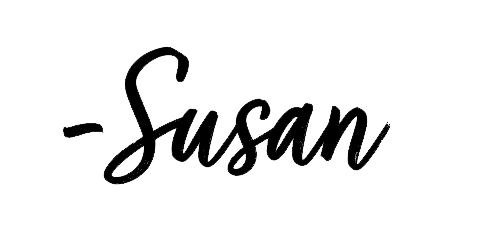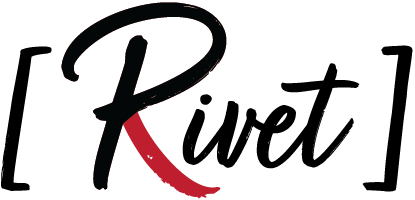
When I introduce myself to people as an editor, I can see the silent caution creep into their minds. They become less carefree with their conversation and start choosing their words more carefully. It is like I can see them thinking, “Should I say well or good?”
I cannot vouch for other editors and proofreaders, but the bottom line is, I am not looking to find mistakes in the way you speak to me or write to me. I am not judging you.
It is not in my nature to judge other people. When the clock shuts down work, my editing and proofreading brain does as well. I really do not naturally edit your texts, emails or conversations for grammar, spelling, punctuation or syntax mistakes.
So, if I am not judging the quality of your words, what am I actually supposed to be doing as an editor? Read on to learn more about when I am helping, not judging you in order to make you look smart and polished.
Context
Every word and how you use it has its place. The context in which we use words makes all of the difference in how I help you, not judge you when editing your work.
In business, if I am reading a published piece or email, you can be sure I am judging the quality of the writing. Little errors will stop my reading flow, and my overall impression of the article and the person who wrote it plummets.
Additionally, mistakes in business can be devastating. A print run of 50,000 product packages put out on store shelves with errors is costly.
However, if the writing is more casual, like a business email between me and someone else, I could care less if someone misspells a word. Frankly, I do not notice these mistakes at all. Moreover, even if I notice them, I do not judge that person’s ability or intelligence.
When it comes to editing authors, I rarely judge the writer’s intelligence or ability when they first turn over the work. Great writers do not self-edit while they are writing; therefore, mistakes with grammar, spelling and punctuation are normal.
Additionally, the context of writing equates to the author’s writing style. Style, often termed as an author’s “voice,” includes word choice, tone, rhythm and syntax of a writing piece. Editors and proofreaders have the goal of maintaining an author’s voice or style as much as possible.
For example, there are several literary devices that authors use for style. Unfortunately, an uninformed editor may cut these devices out unintentionally to improve the writing.
One example of a style choice is the use of an anaphora. According to Webster’s Dictionary, an anaphora is a “repetition of a word or expression at the beginning of successive phrases, clauses, sentences or verses, especially for rhetorical or poetic effect.” A successful editor will recognize this literary device and not remove it if it makes sense in the context of the writing. Louise Harnby does an excellent job describing the use of anaphora’s as a style choice in her article: What is anaphora and how can you use it in fiction writing.
Your Time is Money

Our time is not infinite. I do not judge your writing because it is more important for you to get your message out to start making money now, not proofreading. I give grace to those who are the movers and shakers.
I also love working with people who tell me flat out they hate editing and proofreading. Of course, they see the value in making sure their work looks professional, but they either do not have the patience for the detailed work, do not enjoy doing it or do not have the skills.
The time drain because larger when you try to do everything and still look professional while doing everything. Oftentimes, companies ask their marketing team to do the editing and proofing. But when you do this, you:
- Add more on the team’s plates than they can handle
- Give work to people who cannot see their mistakes because they have worked so closely on it for too long
- Put the work on people who often do not have editing skills
It becomes a lose-lose situation. Burn out and boredom. This is why editors and proofreaders like myself are hired to do the job. If accountants use calculators to speed up their job and make sure numbers are correct, there is no sense in not hiring a proofreader to make sure the words are just as clean.
Nobody is Perfect
The goal of a proofreader or editor is to make the work you put out to the world clean of errors and understandable to readers. We realize that nobody has perfect grammar and spelling skills 100 percent of the time. Therefore, we are here to help you look the best you can, not to judge you.
Things seem to matter more when you get paid to do them. Every time I edit or proofread, I quickly remember, I am not perfect. Because I get paid to make my clients writing first-rate, I second guess every suggested change I make. I am actually judging myself on every suggested correction I make for my clients. I consult dictionaries, grammar and style books, and even jump on professional Facebook group chats from time to time to discuss potential errors that I get hung upon. But I see these as the tools I use to craft the best message or writing I can, not to judge myself.
Remember that perfection is not possible, even if you pay someone like me to make the work error-free. Even among professional proofreaders and editors, on average, we only catch 95 percent of mistakes.
Final Judgement Thoughts
As an editor and proofreader, I am here to help you look your best, not to judge you. I do not like being around people who judge others, and I hope you do not either.
- I am here to make you look more professional.
- I want you to make more money and spend less time correcting your work.
- I want others to take your work seriously.
- I want to reduce the time you spend rewriting and correcting.
- I want you to learn along with me so that you can improve your writing skills.
If you are struggling with how you look professionally with anything that is written, such as emails, marketing materials or presentations, please feel free to reach out to me so we can talk about your situation and how I can help you get back to making money and looking professional.







